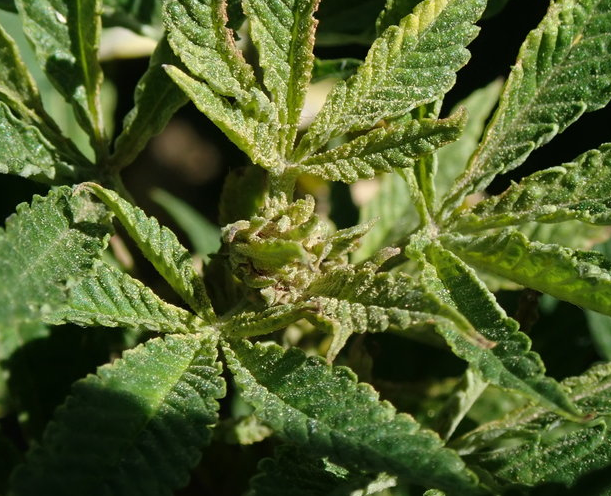What started as a loophole to stop drug lords is now strangling legal marijuana businesses. And in 2025, it’s boiling over.
Ask any legal cannabis operator what keeps them up at night, and odds are, it won’t be regulations or compliance. It’ll be three characters: 280E. The section of the Internal Revenue Code that was written to stop cocaine dealers from writing off business expenses now hits compliant marijuana firms hardest—even though they’re playing by the book.
It’s becoming harder to ignore, not just because companies are bleeding cash, but because the contradiction is now so absurd, even some policymakers are starting to blink.
The Ghost of 1982: What Is 280E, and Why Is It Still Around?
Back in the early ’80s, a convicted cocaine trafficker tried to write off his business expenses—yes, seriously. The IRS didn’t laugh. Congress responded by drafting Section 280E: a clause that says anyone trafficking in Schedule I or II substances can’t deduct ordinary business expenses from their federal taxes.
Flash forward four decades, and cannabis—still a Schedule I drug federally—is now legal in 38 states in some form. Yet 280E still applies. That means dispensaries, growers, and processors can’t write off essentials like rent, payroll, utilities, marketing, or office supplies. Not even a stapler.
Here’s what that looks like on paper:
-
A typical business pays tax on its net income.
-
A cannabis business pays tax on its gross income—before rent, salaries, and everything else.
This can push their effective tax rate above 70%, depending on the business model and state. No wonder many are struggling to stay afloat.

Taxation Without Deduction: The Financial Fallout
For years, cannabis businesses have limped along, adjusting margins and cutting costs where they can. But the 280E impact has compounded. And now, it’s not just hurting individual companies—it’s stunting the entire sector.
In 2023, California saw over 15% of licensed retailers shutter operations, citing excessive tax burdens and unsustainable margins. Across the U.S., similar patterns emerged, especially for small operators without investor backing or multistate footprint.
Here you go. It’s hitting hardest at the local level. And it’s putting equity license holders in a chokehold.
A 2024 report from Whitney Economics showed only 24% of U.S. cannabis businesses are profitable. That’s down from 42% just three years prior.
Strategies to Fight Back—Without Breaking the Law
The good news? Businesses aren’t totally powerless. Over time, some have developed smart workarounds that stay within the bounds of the law—though they require careful planning and good legal advice.
One approach? Segment the business.
Here’s how that can look:
-
Create separate entities: One for the cannabis “touching” side (subject to 280E), and one for ancillary services like branding, consulting, IP licensing, or real estate.
-
Ensure clear arm’s-length agreements between the two.
-
Only allocate deductions to the non-cannabis side.
This isn’t new, but it’s become more popular recently as enforcement priorities shift and companies get savvier.
Even more practical:
-
Meticulous cost accounting for COGS (Cost of Goods Sold), which can be deducted.
-
Using Section 471 to allocate as many expenses into COGS as possible (within reason).
-
Reinvesting profits into business growth rather than pulling income as salary.
Some firms are even forming co-ops to share services and reduce overhead, or relocating to states with friendlier local tax environments—even if federal 280E still looms.
The Push for Repeal: Congress, Courts and Political Clout
So what’s the fix? Ideally, removing cannabis from Schedule I would do the trick. That’s been on the table for years—but it always seems to slip off before the dessert course.
President Biden’s 2024 directive to the DEA to reschedule cannabis to Schedule III—if finalised—could change everything. Schedule III drugs are no longer subject to 280E. That would mean cannabis companies could finally claim deductions like any other business.
But there’s a catch.
As of mid-2025, rescheduling is still pending. The DEA has released draft rules, but legal challenges and agency reviews have slowed everything down.
Everyone’s watching. And everyone’s frustrated.
On the legislative side, the SAFE Banking Act continues to be reintroduced in Congress, often with bipartisan support, but rarely with real teeth.
Even if that passes, it won’t touch 280E unless full descheduling or tax reform follows.
Table: How 280E Impacts a Sample Dispensary’s Finances
To put this into perspective, here’s a rough side-by-side comparison of how a standard business and a cannabis dispensary get taxed on the same revenue.
| Category | Standard Retail Store | Cannabis Dispensary (280E) |
|---|---|---|
| Gross Revenue | $1,000,000 | $1,000,000 |
| Operating Expenses | $700,000 | $700,000 |
| Taxable Income | $300,000 | $1,000,000 |
| Tax Rate (Assume 30%) | $90,000 | $300,000 |
| Net Income After Tax | $210,000 | $0 or negative |
Yes, you read that right. Same revenue, very different outcome.
The Future? Still Foggy, But Pressure’s Building
Here’s the twist: the longer 280E stays in play, the more it highlights the absurdity of the current system. Legal cannabis is a multi-billion-dollar industry. Yet the IRS taxes it like a criminal enterprise.
That’s not just unsustainable—it’s illogical.
States want tax revenue. Cities want regulated dispensaries. Consumers want safe, legal products. But without relief from 280E, the businesses delivering those goods are gasping for air.
If Schedule III goes through, it’ll be the lifeline the industry needs. If not, more bankruptcies, layoffs, and underground markets may follow.
And right now, no one wants that—not even the IRS.
